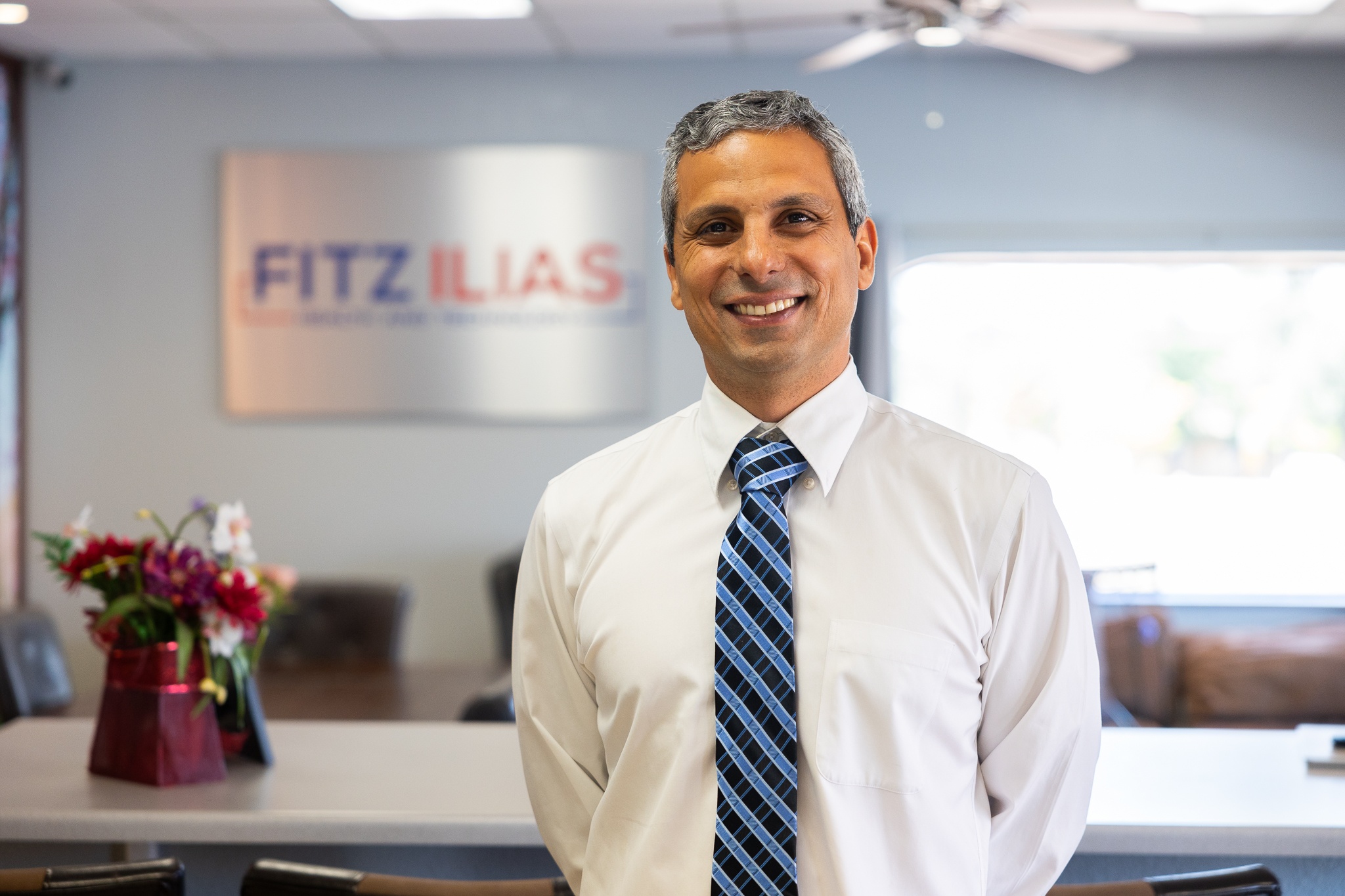Everybody Deserves Exceptional Mental Healthcare

Fitz Ilias: Pioneering a Mental Health Revolution in Rural America
United States— Fitz Ilias, a family-owned mental health care provider, has taken a significant leap in transforming the landscape of mental health services. The company was founded on the principle that everyone deserves exceptional and accessible mental health care…
Read More
With a focus on integrating mental health services into healthcare settings, medical clinics, residential facilities, treatment centers and hospitals nationwide, Fitz Ilias is advancing mental health care, making it more accessible, affordable, and convenient, especially in rural communities.
The decline in mental health, especially in rural communities and after the COVID19 pandemic, has been a growing concern. With increases in issues like suicide, substance abuse, depression, and violence, the need for accessible mental health care is more urgent than ever. Fitz Ilias is at the forefront of addressing these challenges.
The company understands the unique challenges faced by rural communities. “We are part of a rural community; our friends, family, and employees live here. We understand the difficulties in accessing mental health services in such areas and are dedicated to addressing this issue,” said a company spokesperson.
Starting as a one-doctor practice serving 300 patients a year, Fitz Ilias has now expanded its reach, serving over 10,000 patients annually. With years of experience in mental health program integration and proprietary systems tailored to accommodate programs of any size, Fitz Ilias is well-equipped to cater to their partner’s specific needs, big or small.
“Health care should not be a luxury,” states the founder of Fitz Ilias, Tessie Gumusaneli. “Our mission is to bring first-class mental health services to areas that need it the most. By collaborating with partners and integrating our services into various healthcare settings, we are not just providing care; we are improving lives.”
The company’s approach has been widely acknowledged for its proficiency in delivering exceptional mental health care, leading to improved patient satisfaction with positive outcomes. “Our integrative model not only speeds up access to mental health care but also reduces costs and enhances the overall patient experience,” said a Fitz Ilias client services director. “Our program has effectively cut down waiting periods from a staggering 4 months to less than 7 days, ensuring that individuals can promptly access care from a mental health specialist quickly.”
Fitz Ilias is committed to challenging the status quo in healthcare. They believe in putting people before profits, focusing on excellent care, customer service, and patient satisfaction without the constraints of shareholders or bureaucracy. This decentralized model has proven effective, offering flexibility and excellent wages for providers, and focusing solely on patient care.
Fitz Ilias is calling on organizations to join them in their mission to transform mental health care delivery in rural communities. “Together, we can make a significant difference. It’s not just about providing services; it’s about uplifting entire communities,” the founder expressed.
Join Fitz Ilias in reshaping the future of mental healthcare delivery. Be part of the change, and let us build a healthier and happier world, one patient at a time.

Harmonizing the Mind: How Music Therapy Aids in Teen Mental Health and Combats Suicide
In the labyrinth of adolescence, where the paths of identity formation, resilience, and emotional well-being intertwine, a unique approach has emerged in combating one of the most pressing issues of our time – teen suicide. The therapeutic power of music, an art form as old as humanity itself, is being harnessed to provide solace and healing to troubled teens. This article delves into the transformative role of music therapy in fostering a healthy adolescence and mitigating the risks associated with this critical developmental stage….
Read More
The journey of adolescence is marked by several key psychological stages: identity versus role confusion, industry versus inferiority, and, ultimately, the development of integrity over despair. These stages encapsulate the challenges faced by teenagers as they grapple with identity formation, a sense of competence, connectedness, autonomy, and the ability to overcome feelings of guilt and inferiority. In this volatile phase, the risk of teen suicide looms as a dark shadow, a consequence of unaddressed mental health issues and emotional turmoil.
Enter music therapy, a beacon of hope in this complex scenario. Music therapy, especially in its group improvisational form, has shown promising results in alleviating depression among adolescents, a key factor contributing to suicidal ideation. The study “The effects of group improvisational music therapy on depression in adolescents and adults with substance abuse: a randomized controlled trial” by Yadira Albornoz, published in 2010, sheds light on this aspect.
The study involved 24 Spanish-speaking patients undergoing treatment for substance abuse at Fundación José Felix Ribas in Mérida-Venezuela. They were assessed using the Beck Depression Inventory (BDI) and the Hamilton Rating Scale for Depression (HRSD) and then divided into experimental and control groups. The experimental group participated in 12 group improvisation sessions over three months alongside standard treatment, while the control group received only the standard treatment. The results were telling – the experimental group exhibited significantly lower depression levels as measured by the HRSD, compared to the control group.
This study underscores the potential of music therapy in addressing depression, a significant risk factor for teen suicide. The improvisational aspect of the therapy, allowing for creative expression and collaboration, seems to have a particularly profound impact. However, the study also acknowledges limitations, including a small sample size and the absence of a specific depression assessment tool for substance abuse.
Music therapy’s success lies in its ability to offer an inclusive and diverse approach to mental health. It fosters an environment of healthy, open-minded diversity, where teens can explore and express their emotions freely. Music, in its myriad forms, resonates with the diverse experiences and backgrounds of adolescents, making it a universally accessible tool for emotional healing.
The role of music therapy extends beyond mere symptom management. It plays a crucial role in identity formation and the development of autonomy and competence. By engaging in music-making, teens find a powerful medium for self-expression and a sense of connectedness with others. This experience is instrumental in building resilience, a critical asset in navigating the complexities of adolescence and reducing the likelihood of despair that can lead to suicidal thoughts.
In conclusion, music therapy emerges as a vital ally in the fight against teen suicide. It offers a holistic approach to mental health, addressing the emotional, cognitive, and social needs of adolescents. As we continue to explore and understand the depths of the adolescent psyche, the harmonious chords of music therapy offer a promising pathway to a healthier, more resilient generation. As this therapy gains more recognition and becomes more widely available, it holds the promise of not only saving lives but enriching them with the profound, healing power of music.
The decline in mental health, especially in rural communities and after the COVID19 pandemic, has been a growing concern. With increases in issues like suicide, substance abuse, depression, and violence, the need for accessible mental health care is more urgent than ever. Fitz Ilias is at the forefront of addressing these challenges.
The company understands the unique challenges faced by rural communities. “We are part of a rural community; our friends, family, and employees live here. We understand the difficulties in accessing mental health services in such areas and are dedicated to addressing this issue,” said a company spokesperson.
Starting as a one-doctor practice serving 300 patients a year, Fitz Ilias has now expanded its reach, serving over 10,000 patients annually. With years of experience in mental health program integration and proprietary systems tailored to accommodate programs of any size, Fitz Ilias is well-equipped to cater to their partner’s specific needs, big or small.
“Health care should not be a luxury,” states the founder of Fitz Ilias, Tessie Gumusaneli. “Our mission is to bring first-class mental health services to areas that need it the most. By collaborating with partners and integrating our services into various healthcare settings, we are not just providing care; we are improving lives.”
The company’s approach has been widely acknowledged for its proficiency in delivering exceptional mental health care, leading to improved patient satisfaction with positive outcomes. “Our integrative model not only speeds up access to mental health care but also reduces costs and enhances the overall patient experience,” said a Fitz Ilias client services director. “Our program has effectively cut down waiting periods from a staggering 4 months to less than 7 days, ensuring that individuals can promptly access care from a mental health specialist quickly.”
Fitz Ilias is committed to challenging the status quo in healthcare. They believe in putting people before profits, focusing on excellent care, customer service, and patient satisfaction without the constraints of shareholders or bureaucracy. This decentralized model has proven effective, offering flexibility and excellent wages for providers, and focusing solely on patient care.
Fitz Ilias is calling on organizations to join them in their mission to transform mental health care delivery in rural communities. “Together, we can make a significant difference. It’s not just about providing services; it’s about uplifting entire communities,” the founder expressed.
Join Fitz Ilias in reshaping the future of mental healthcare delivery. Be part of the change, and let us build a healthier and happier world, one patient at a time.

Meet Ergi Gumusaneli, Founder and Owner of Fitz Ilias
Dr. Ergi Gumusaneli M.D. is at the forefront of revolutionizing mental health care in the United States. As the Founder and CEO of Fitz Ilias, a mental health service company, his commitment to excellence and patient care sets him apart as a recognized expert in the field…
Read More
Under his visionary leadership, Fitz Ilias has grown into an organization that empowers medical clinics, residential facilities, treatment centers and hospitals nationwide to achieve exceptional mental health care for their patients. Fitz Ilias’ unique decentralized and integrated model prioritizes whole person care and uses data driven analytics along with superb customer service, making it the top choice for collaborative partnerships and mental health integration.
Driven by the belief that “EVERYBODY deserves exceptional mental health,” Fitz Ilias is reshaping how mental health care is delivered, transforming lives and entire communities across America.

Empowering Communities: How Integrated Models Can Make Mental Health Treatment More Accessible
Across the United States, millions of people struggle to access quality mental healthcare. Statistics from the National Alliance on Mental Illness (NAMI) show that nearly one in five adults in the U.S. experiences mental illness in a given year..
Read More
(1). Geographic barriers, limited resources, and social stigma all contribute to a significant treatment gap. However, innovative approaches like integrated care models are emerging as a powerful solution to bridge this divide and empower communities to prioritize mental well-being.
The traditional model of mental healthcare often operates in silos, with individuals seeking separate services from psychiatrists, therapists, and primary care physicians. This fragmented approach can lead to delays in diagnosis, uncoordinated treatment plans, and difficulty navigating the complex healthcare system. A 2020 study published in the Journal of the American Medical Association (JAMA) found that patients with co-occurring mental and physical health conditions often experience fragmented care, leading to poorer health outcomes (2).
Integrated care models, on the other hand, break down these barriers by bringing together different healthcare professionals within a single setting or through collaborative partnerships. This allows for a more holistic approach to patient care, where mental health concerns are addressed alongside physical health needs.
Dr. Ergi Gumusaneli, a leading expert in mental healthcare delivery and CEO of Fitz Ilias Inc., a company specializing in integrated mental health services, explains the benefits of this approach. “Imagine a person struggling with anxiety who also describes physical symptoms,” says Dr. Gumusaneli. “In an integrated model, that person can work with their primary care physician and also mental health specialist in the safety, trust and comfort of one health system.”
Integrated models offer several advantages beyond improved coordination. They can significantly increase access to care, particularly in underserved and under resourced communities where mental health specialists might be scarce. A 2019 study published in the journal Health Affairs found that integrated care models in primary care settings led to a significant increase in the identification and treatment of depression, particularly in rural areas (3). Telehealth technology plays a crucial role in this model, allowing patients to connect with providers remotely, regardless of location.
Furthermore, the collaborative nature of integrated care fosters better communication and understanding between patients and providers. “Patients feel more empowered when they have choice and a team approach to their healthcare,” observes Dr. Gumusaneli. “They are more involved in their treatment and feel supported by their team.”
The impact of integrated models extends beyond individual patients. Studies have shown that these models can lead to improved patient outcomes, and a more efficient allocation of resources. A 2018 meta-analysis published in the Journal of Clinical Psychiatry found that integrated care for depression led to greater improvements in symptoms and a higher rate of remission compared to usual care (4). Additionally, by integrating mental health services into primary care settings, these models can help to normalize conversations about mental health and reduce stigma. A 2021 study published in the journal Psychiatric Services found that integrated care in primary care settings led to increased help-seeking behaviors for mental health concerns (5).
While challenges remain, such as ensuring adequate funding and workforce development, the potential of integrated care models to revolutionize mental healthcare delivery is undeniable. A 2022 report by the National Academies of Sciences, Engineering, and Medicine called for a “fundamental transformation” of the mental healthcare system, emphasizing the importance of integrated care models as a key strategy for improving access and outcomes (6). By fostering collaboration, leveraging technology, and prioritizing patient-centered care, these models hold the key to empowering communities to achieve better mental health outcomes for all.
Fitz Ilias: A Model for Collaboration
Fitz Ilias, a company led by Dr. Gumusaneli, exemplifies the power of integrated care models. The company partners with existing healthcare facilities, such as rural health clinics and federally qualified health clinics, to integrate mental health services into their existing infrastructure. This approach leverages existing resources and expertise, making it a cost-effective and scalable solution.
“We believe that everyone deserves exceptional mental health care,” says Dr. Gumusaneli. “Our focus is on empowering communities by building capacity within existing healthcare systems. This allows us to reach more people and make a more positive impact in their lives.”
The Road Ahead
The future of mental healthcare is undoubtedly integrated. As more communities embrace this model, we can expect to see a significant improvement in access to care, treatment outcomes, and overall mental well-being. By working together, healthcare providers, policymakers, and communities can create a future where everyone has access to the mental health care they need to thrive.
Challenges and Opportunities
While integrated care offers a promising path forward, there are still hurdles to overcome. One significant challenge is securing adequate funding. Mental health services are often underfunded, and integrated care models require investment in infrastructure, technology, and workforce development.
Dr. Jessica Hudson, a mental health policy researcher at Georgetown University, emphasizes the need for systemic change. “We need to see a shift in how we finance mental healthcare,” says Dr. Hudson. “Integrated models require upfront investment, but the long-term cost savings and improved health outcomes can be substantial.”
Another challenge lies in workforce development. The mental health field faces a shortage of qualified professionals, particularly in rural areas. Initiatives are underway to address this gap, such as loan repayment programs for mental health professionals who choose to serve in underserved communities.
Despite these challenges, there are also significant opportunities for growth. Telehealth technology is rapidly evolving, making it easier for patients to connect with providers remotely. Additionally, there’s a growing recognition of the importance of mental health, which is leading to increased public and private investment in the field.
Looking Forward
The future of mental healthcare is bright. Integrated care models offer a promising solution for addressing the mental health crisis in the United States and around the world. By fostering collaboration, leveraging technology, and prioritizing patient-centered care, these models can empower communities and individuals to achieve better mental health outcomes. As Dr. Gumusaneli concludes, “Integrated care is not just a trend; it’s the future of mental healthcare. By working together, we can create a world where everyone has access to the care they need to live a healthy and fulfilling life.”
References:
- https://www.nami.org/mhstats
- https://jamanetwork.com/journals/jama/fullarticle/2766418
- https://www.healthaffairs.org/topic/248
- https://journals.sagepub.com/doi/abs/10.1177/2377960819861862
- https://www.ncbi.nlm.nih.gov/pmc/articles/PMC2777555/
- https://nap.nationalacademies.org/catalog/25927/caring-for-people-with-mental-health-and-substance-use-disorders-in-primary-care-settings